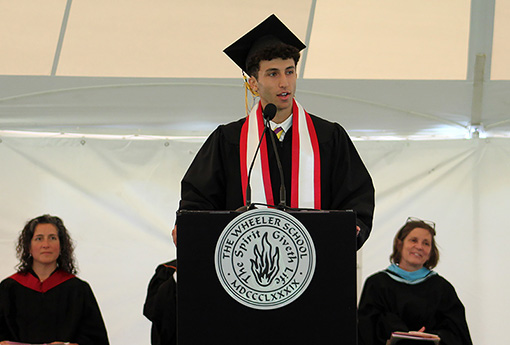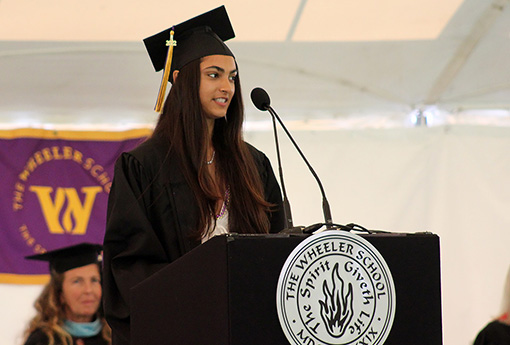
Walk with Us
June 3, 2020
Walk with Us
Searching for signs of the goodness that I believe lives in all of us in the sea of deeply sorrowful news, I came across a video from Flint, Michigan. A local Sheriff asked a group of protestors how he and his officers could help and they all began to chant: “walk with us, walk with us.” And so they did. I can’t stop thinking about this. They walked together in joy, in sorrow, and solidarity. In other cities and towns, police joined with protestors, acknowledging how far we have to go, and how high our expectations and requirements are that our country and its people acknowledge the painful aspects of racial injustice that live at the formation of this nation and live up to our promises for equity, justice, and peace.
Every day, I come to my work in education with a sense of hope that this place, this community, our school can play a role in improving the world through the education of individuals and communities. We are our nation, our city, our school, our community. Complex, painful, imperfect. These days of compounding sicknesses — systemic racism and COVID-19 — are convulsing across our nation, trying our ability to hold hope in our hearts. Systemic racism and its symptoms are not a “novel” virus, however. Throughout our nation’s history, Black Americans have been persistently subject to violence under the cover of official sanction. After the murder of Trayvon Martin in 2012, the Black Lives Matter Movement was born in 2013 and gained international recognition after the murders of Michael Brown and Eric Garner. Along the way, there have been many reactions to Black Lives Matter from within the African-American community and outside. For Wheeler, we believe Black Lives Matter has a simple and profound meaning: that we must acknowledge that the sanctity of black lives has been repeatedly violated throughout our history and that we must, especially as an institution of education, work tirelessly towards righting this wrong.
While it is hard to continue to hope, we cannot let it go. But even more, we have to infuse our despair and empathy with action. And if a school is but a microcosm of the world, which I believe it is, it is our responsibility — all of us who collectively raise and educate this generation of children — to instill anti-racism in the next generation to promote wholeness in the world of today and tomorrow. At Wheeler School, anti-racism is an intentional part of our curriculum now and will be so in the future. We owe this to our children.
Thank you to our alumni who are working on the front lines of these compounding crises and who are helpers, to our faculty and staff who raise complex and challenging topics with our young people and acknowledge and attempt to repair mistakes when they occur, to our parents and guardians who keep striving for dialogue and openness at home, and who choose to be part of a community that courageously — though imperfectly — works towards empathy, equity, and justice. Our school will not be whole until every human being — and moreover, every black and brown person — in our community feels seen, heard, valued. The Wheeler School is often but not always that place, and we must not rest.
The fact that this is the final “regular” week of our 2019-20 school year shines an intense spotlight on the uneasy balance of accomplishment and incompleteness that always comes for me in June. And it is just that: we have done a great deal; we have so much to do. And while it is highlighted by current events, this is always the case. Our work is never done. But it is with this semicolon that we end this year, an indication that we have much more to say and even more to do.
Walk with us.
Allison Gaines Pell
Head of School

